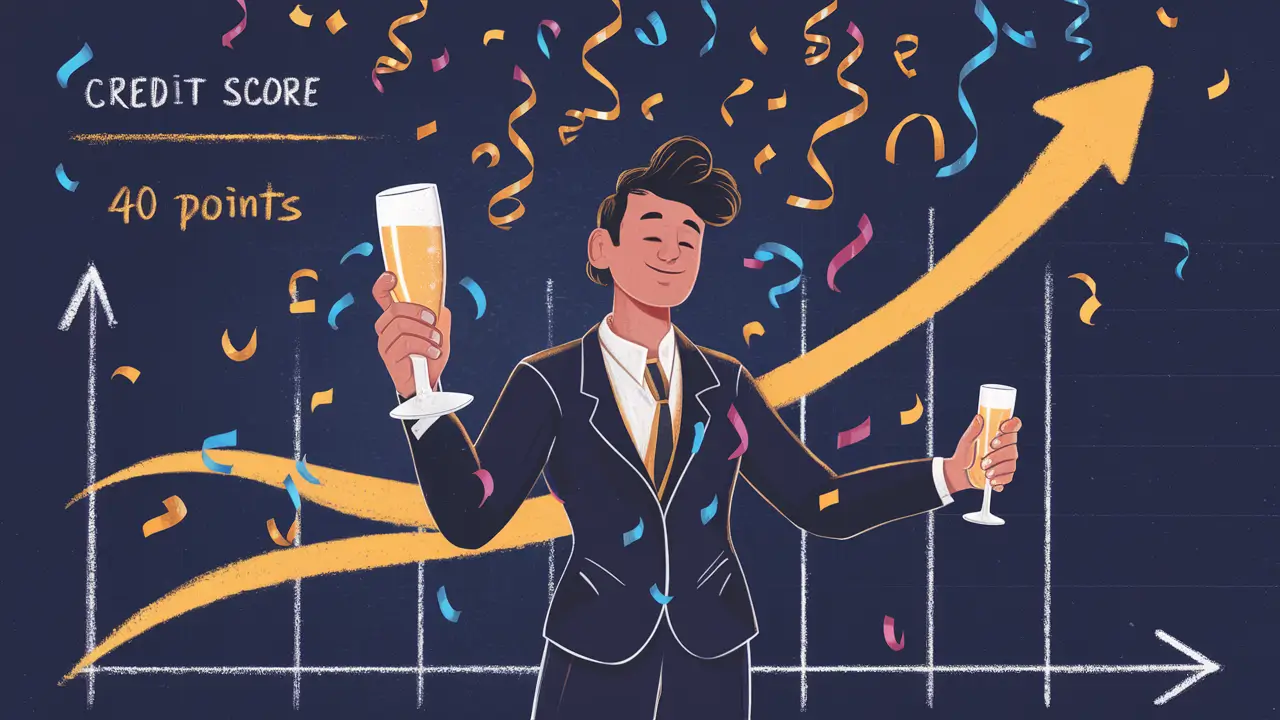
You were repaying a certain credit card or any other loan to improve your credit score to better figures. But instead of this, unexpectedly you found that your credit score was reduced by 40 points immediately after you completed the payment. What happened and why did they go down and not up after paying all that debt? Here are some possible reasons They might include:
1. Your Credit Mix Changed
Credit scoring models prefer to have a blend of different types of accounts in your credit report; and that includes both fully amortized loans (such as student, car, or mortgage loans with regular fixed monthly payments) and revolving credit accounts such as credit cards. If the debt you paid off completely was one of your oldest revolving accounts, this reshuffled the overall credit mix, and it most definitely eliminated the oldest credit card account on your credit report.
These changes affect your credit score calculation right away and because credit scoring models want to see you able to maintain different types of accounts over time, your credit score comes down as a result.
2. The New Credit Line Also Affected Your Over All Credit Usage
The credit utilization ratio contributes to 30% of the FICO credibility score of your credit. This ratio analyses your overall credit card balances with the total amount of credit you hold. It is crucial to note that the best practice is to keep credit utilization below the 30% mark.
Okay, let’s say you own only one credit card and the limit of this card is $10000, and the balance of the card at the time you make the final credit card payment is $2000. Before paying off the debt your utilization was $2,000 on the $10,000 credit limit which will give you the 20% utilization.
However, once the $2,000 balance was paid and became $0, it also brought down the utilization rate right on that card and in total. However, 0% utilization, as you will see some models interpret 0% utilization that you are not even using credit. Alongside the closure of the account, it can lead to a reduction of your score as well Sometimes it can be a result of the closure of the account as well.
3. Closed Credit Card Account
Besides the utilization changes mentioned above, if the debt you paid off was on a credit card that was then closed, it also has the direct impact of reducing your total credit (In our example, of closing the credit card with a limit of $10,000). Aggravated by lower total credits, lower total balances will negatively affect your credit score.
4. The mix of the length of credit history is another important factor that has changed
The length of your credit history similarly also considers a 15% FICO score. On the same note, just as with your credit mix, scoring models that believe you are capable of handling different types of accounts over time.
However, when you close the credit line after you have repaid an installment loan or a revolving account, then the change in credit history will be brought about by paying off the loan which was one of the oldest accounts available. As much as the history length is shortened here, it brings your score down.
For instance, in the case of credit cards, you may have had a closed credit card which was your first account created during the freshmen year of college while you still have a younger student credit card and auto credit which were opened several years later. While it is true that those loans still exist, your average credit history length will be reduced when you finally pay that first credit card in full and it is closed.
Short-Term Score Fluctuations
It is not unusual to see your credit score rise or fall slightly during a given period without you engaging in activities that could be perceived as credit-intensive. This is because scoring models contain numerous factors that may shift no matter the overall stability of your account base and financial behaviors. For instance, small changes may be brought by shifting rates of interest, economic conditions, and the modifications that the credit bureaus make.
Thus, while a 40-point drop seems like a big difference, it could be based on the current position and not a stable trend. Sometimes, a significant boost or a significant deterioration of credit can go deeper. If you see your scores drop, and continue like this for more than a couple of billing cycles, you will have to take a closer look at your reports.
In most of these cases, it is probable that the drop is temporary and that there will be higher revenues in the following period. It has been found that scores improve within a few months if you remain continually using credit. Your score may even improve to a level higher than the one that was previously obtained once you prove that you are capable of handling money well without the accounts that were closed. Maintaining the blending of different account types, small balances, low number of credit inquiries, and average history age in the future also contributes to offset the above effects in equal measure.
Call now for expert credit repair services: (888) 803-7889
Read More:
What credit score do you need for a $300000 mortgage?
Is it a good idea to buy a house with no money down?
Is it true after 7 years a credit report is clear?
What drops credit score the most?
How far off is the Credit Karma score?




